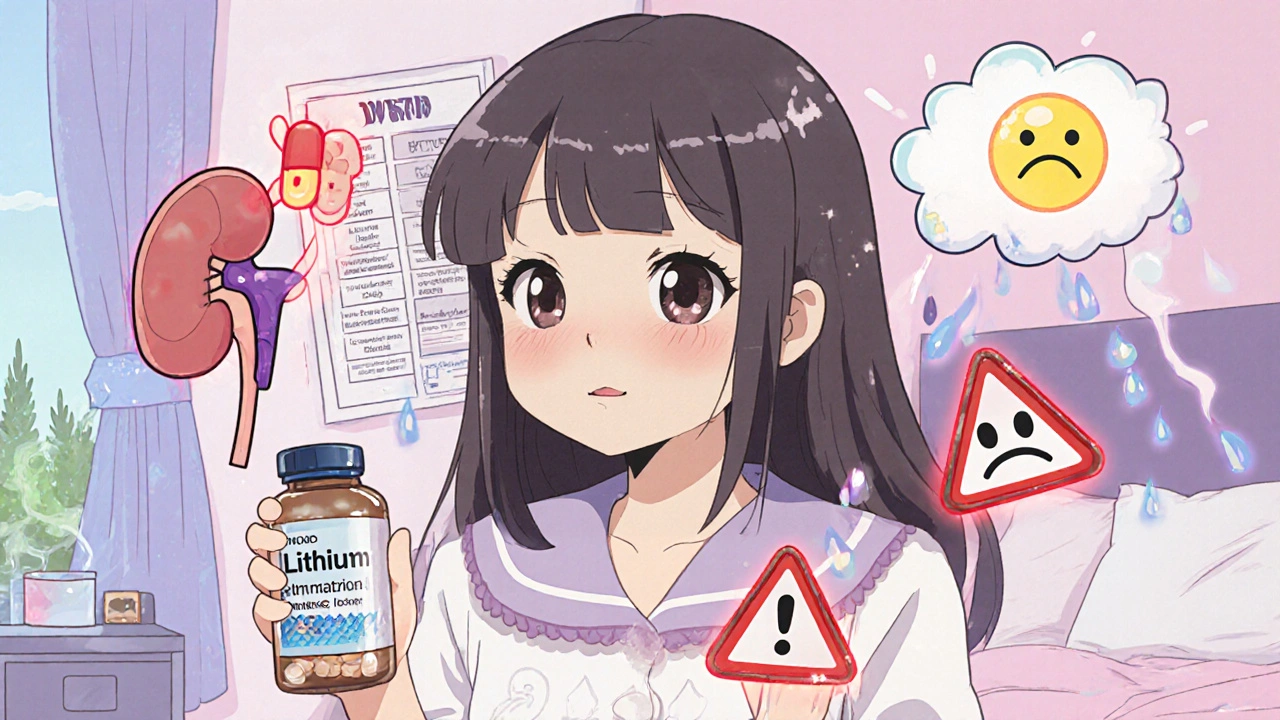Lithium Toxicity: Signs, Risks, and What to Do If It Happens
When you’re taking lithium, a mood-stabilizing medication commonly used to treat bipolar disorder. Also known as lithium carbonate, it helps control extreme mood swings—but it has a narrow safety window. Too little won’t help. Too much can be life-threatening. That’s why lithium toxicity, a dangerous buildup of lithium in the body is one of the most serious risks for people on long-term treatment.
Lithium toxicity doesn’t happen overnight. It usually creeps in when your kidneys can’t clear it fast enough. That’s why dehydration, salt loss, or starting a new medication like ibuprofen or ACE inhibitors can push levels into the danger zone. Older adults, people with kidney problems, or those on high doses are at higher risk. You might notice early signs like hand tremors, nausea, or frequent urination. Later, you could get confused, have muscle weakness, or even seizures. If you feel off while on lithium, don’t wait—get your blood tested. A simple lithium blood level, a routine lab test that measures how much lithium is in your bloodstream can catch problems before they become emergencies.
What’s tricky is that lithium toxicity often looks like the illness it’s meant to treat. Fatigue, confusion, or dizziness might be written off as worsening depression or anxiety. But if you’re on lithium and your symptoms suddenly change, it’s not just your mood—it could be your chemistry. Many people don’t realize that even small changes in diet, water intake, or other meds can trigger this. A cold that makes you sweat more? A new salt-free diet? A dose change without monitoring? All of it matters.
The good news? Lithium toxicity is almost always preventable. Regular blood tests, staying hydrated, avoiding NSAIDs unless approved by your doctor, and knowing your body’s signals make a huge difference. You don’t need to fear lithium. You just need to respect it. The posts below cover real cases, practical tips for avoiding overdose, how to talk to your doctor about side effects, and what to do if you miss a dose or feel worse. This isn’t theoretical—it’s what people actually deal with every day. You’re not alone. And you don’t have to guess what’s happening to your body.

 Nov, 12 2025
Nov, 12 2025